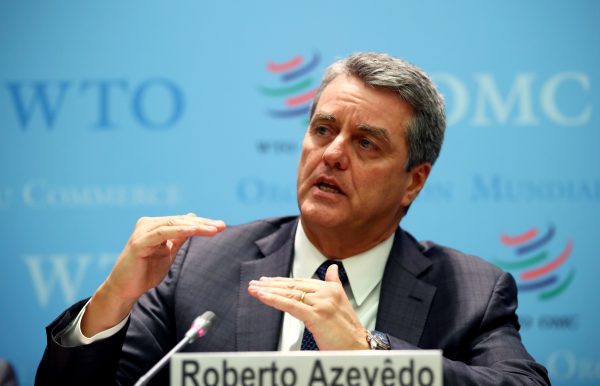Despite the sense of crisis, the WTO is working more productively now than at any time in the last decade.
Over the last two years, a large number of WTO members have made significant inroads in important e-commerce negotiations that will help bring trade rules into the 21st century. Importantly, more countries are joining the group and on 10 December 2019, WTO members decided to extend the moratorium to keep tariffs off the internet. Countries have come closer to agreement on traditionally intractable issues such as ‘disciplining’ fisheries and agricultural subsidies even if they have not yet quite gotten over the line. And there are ongoing negotiations to create rules that would facilitate investment and the provision of services both domestically and across borders, drive women’s economic empowerment and help small businesses better access markets and benefit from the trading system.
But taking a balanced view does not mean putting your head in the sand.
Some of the key pillars of the multilateral trading system seem to have reached their limits in a world where economic power has shifted, the challenge of climate change needs to be addressed, technological advances have disrupted commerce and citizens are increasingly calling for a more inclusive form of globalisation that works for all. The multilateral trading system needs reform to ensure that trade works for people and the planet.
Governments around the world should not let this crisis go to waste. Beyond the urgent imperative arising from the Appellate Body crisis of ensuring that current trade disputes are governed by the rule of law, the present political dynamic presents a huge opportunity to dramatically improve the trading system.
The intense focus on the WTO should be used to strengthen its governance and accountability to build trust in the system. Enhancing engagement with civil society and business groups, increasing transparency of WTO processes and negotiations and establishing evidence-based criteria for granting ‘special but differential treatment’ would go a long way to restoring trust in the system.
Equally, governments should use this moment to conduct a thorough and comprehensive review of the existing WTO rulebook. Trade rules made in the early 1990s simply do not align with the realities of 21st century trade, which is increasingly characterised by the flow of services and data and enabled by digital technologies and global value chains.
Finally, governments should think creatively about how to give the WTO a mandate to deal with the most important and pressing issues of our time such as climate change, sustainability and inequality. Nothing would reinvigorate the WTO like empowering it to deal with not only globalisation but also its discontents.
Thankfully some governments, especially in the Asia Pacific, are stepping up to the challenge. Indonesia’s recent call to reform and modernise the three functions of the WTO — monitoring, conflict resolution and negotiations — is precisely what the International Chamber of Commerce has been calling for. Australia’s facilitation of the plurilateral WTO e-commerce talks is an example of reform through creating rules to deal with the realities of 21st century trade. New Zealand’s key brokering role in an attempt to resolve the Appellate Body impasse deserves both merit and sympathy. And it is heartening that on 10 December 2019, 60 WTO members reaffirmed the central and indispensable role of the WTO in the rules-based multilateral trading system.
Clearly, more leadership is required — not only from governments but also from businesses. Businesses — micro, small, medium and large — have benefitted from the multilateral trading system over the last 25 years. As the primary users and beneficiaries of the global trading system, businesses need to become its advocate and constructively engage in the reform process.
Leadership demands that legitimate grievances over trade’s impacts on jobs, the environment and inequality do not transform into counter-productive calls for protectionism and retreat. Instead, government, business and civil society must work more closely to ensure that the trading system is made to work for people and the planet. In other words, it is time to work together to make the WTO great again.
John WH Denton AO is Secretary General of the International Chamber of Commerce (ICC), Paris.
Damien Bruckard is Deputy Director (Trade and Investment) at the ICC.

